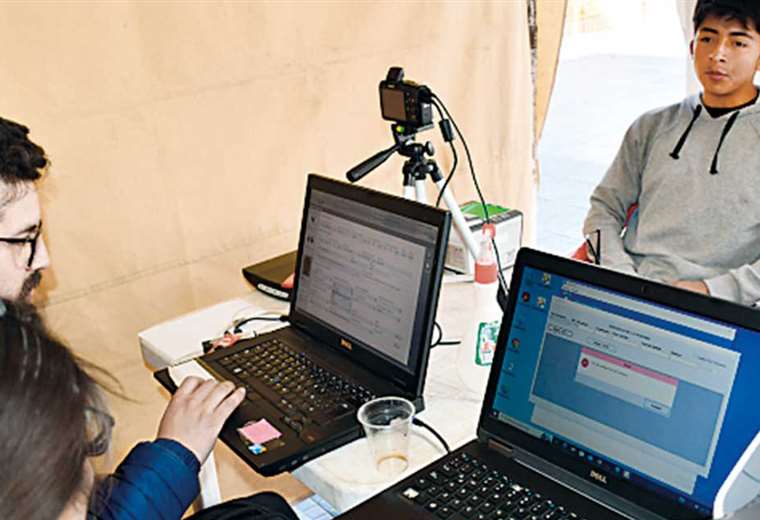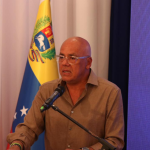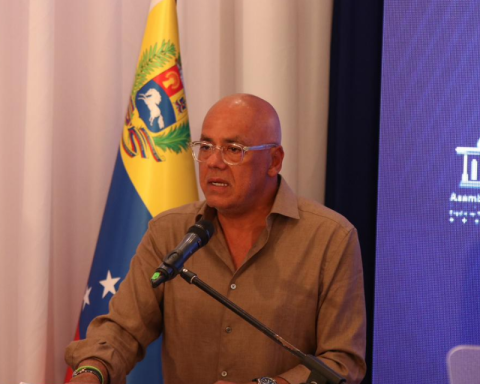August 20, 2024, 7:51 AM
August 20, 2024, 7:51 AM
There will not be a new electoral register for the 2025 general elections. The Supreme Electoral Tribunal (TSE) will carry out a review of the registry and ruled out duplicate voters. Creemos calls for a new multiparty meeting to discuss the aspects of the electoral register.
Electoral official Tahuichi Tahuichi ruled out implementing a new electoral register for the following elections: the judicial elections on December 1 of this year and the general elections on August 17, 2025. The electoral authority said that the registry review will be carried out together with the political organizations, as established in point five of the multi-party agreement developed in La Paz in July of this year.
Tahuichi Quispe reported that this work will be carried out in stages. In the first instance, the 11 parties and the two alliances with a presence in the Plurinational Legislative Assembly will be part of this work together with their IT and systems experts. “We open the doors of the Supreme Electoral Tribunal so that they can enter, test and do all the work they require,” he said.
Then it will be the turn of the universities, through the Executive Committee of the Bolivian University (CEUB). “In fact, we are working on an agreement with the CEUB.”
Voter Tahuichi added that “since Bolivians are distrustful of Bolivians, we are going to work with our peers in electoral bodies. We are also going to issue a report on the confidence of our electoral roll.”
In July, the TSE held the Multiparty and Interdisciplinary Meeting for Democracy at the Electoral Body’s facilities, with the participation of representatives of the political parties and the Executive and Legislative bodies, among others. The meeting ended with the signing of the Declaration for Democracy. The 12-point document includes the request for the processing of a law to suspend the primary elections and thus give priority to the judicial elections this year and the presidential elections in 2025. This law was promulgated yesterday by President Luis Arce. In addition, the meeting also concluded with the review of the electoral roll.
Multiparty agreement
Point 5 of the multi-party agreement states: “The Supreme Electoral Tribunal guarantees the broadest transparency in the consolidation and reliability of the biometric electoral register for the 2025 General Elections, in addition to ensuring the effective participation of political organizations in the phases of registration, updating of the register and consolidation of data, providing timely and effective information to all political actors, civil society organizations and citizens.”
Yesterday, through a letter, the governor-elect of Santa Cruz, Luis Fernando Camacho, demanded a comprehensive audit of the electoral register or, failing that, the implementation of a new one to provide certainty to the population.
The authority, who is detained in the Chonchocoro prison, also requested that the electoral body “implement a system for disseminating preliminary results in future electoral processes so that the population has prior and timely data on the electoral process to generate certainty and reliability.”
In May of this year, member Tahuichi Quispe warned that the electoral register would be the “flank of attack” by “pseudo analysts” and “those who seek to harm democracy.” “We must work on this entire rating system, we will take a look at our electoral register, that will be the flank of attack by those who want to erode, who want to harm our democracy,” he warned at a public event in the city of Trinidad.
In 2009, after the approval of the new Political Constitution of the State, a new Biometric Electoral Registry (PEB) was created that includes the registration of fingerprints and facial biometrics of all citizens eligible to vote.
The Electoral Body made progress in reducing the electoral under-registration. Official data show that 97% of the voting age population is registered in the biometric registry, a figure that reflects a positive result on citizen documentation policies.


















